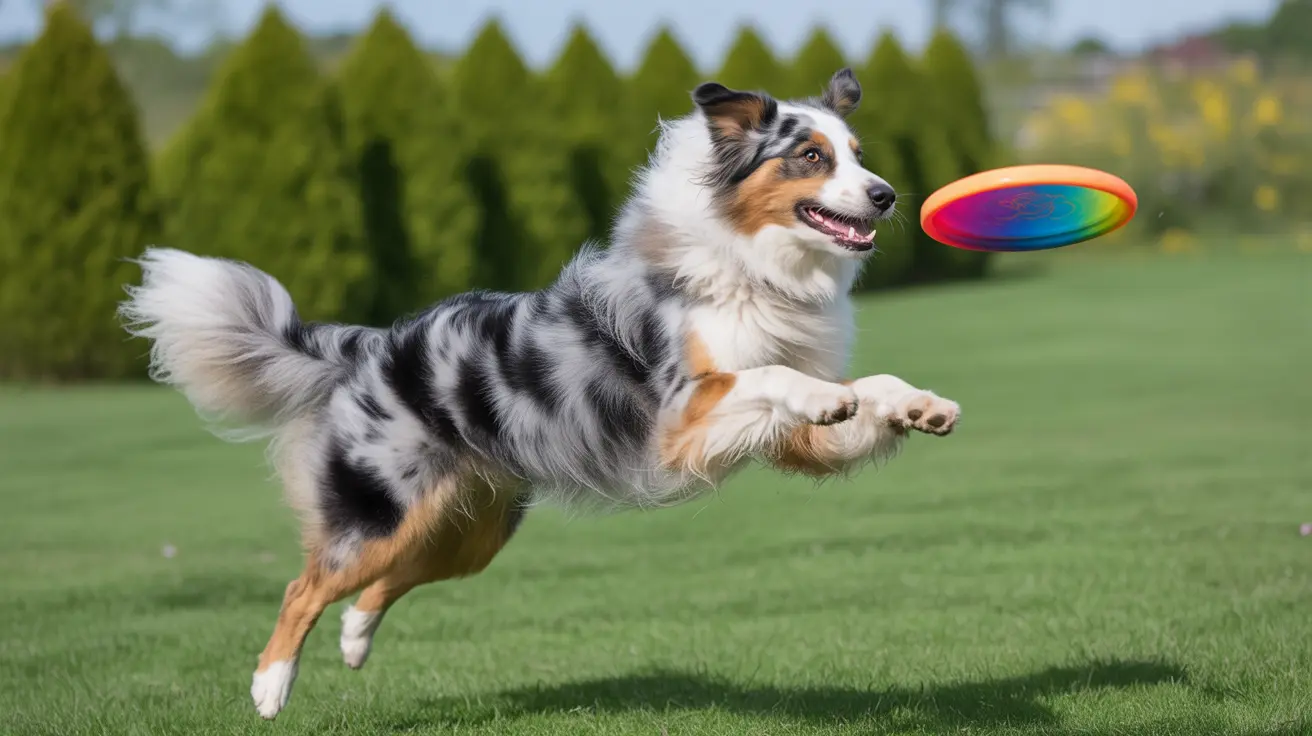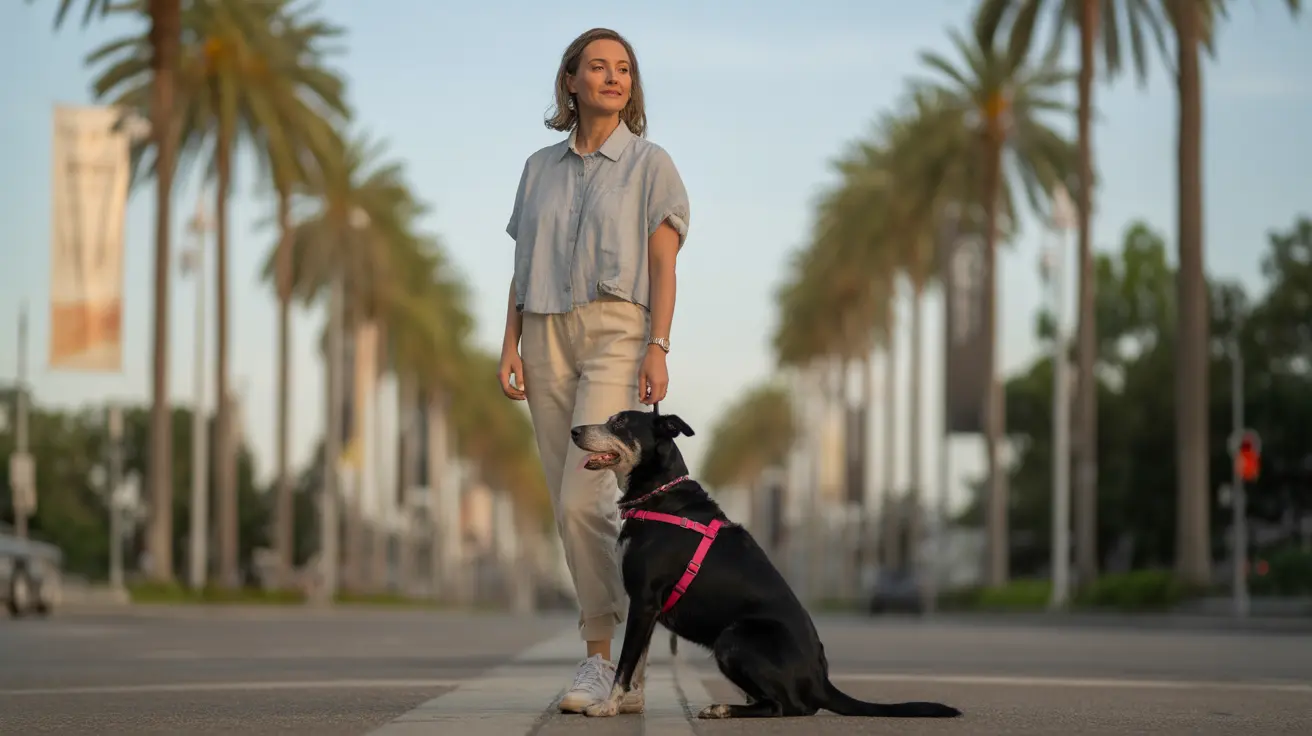The Science Behind the Unique Human-Dog Bond: What New Research Reveals About Our Canine Connections
For thousands of years, humans and dogs have shared an extraordinary relationship that goes far beyond simple pet ownership. While many of us intuitively understand that our canine companions hold a special place in our hearts, groundbreaking research is now revealing just how unique and emotionally significant the human-dog bond truly is. A comprehensive Hungarian study has shed new light on this relationship, demonstrating that dog owners often report higher satisfaction and emotional support from their dogs compared to most human relationships—with the notable exception of bonds with their own children.
This remarkable finding challenges our understanding of interspecies relationships and highlights the profound emotional connections that exist between humans and their canine companions. The research reveals that the human-dog relationship combines elements of both parental care and close friendship, creating a unique bond that often surpasses relationships with other humans in emotional significance. As we delve deeper into these findings, we'll explore the psychological mechanisms, demographic variations, and practical implications of this extraordinary connection that has evolved over millennia.
Understanding the unique human-dog bond study results can help current and prospective dog owners appreciate the depth of these relationships while providing insights into how we can nurture and strengthen these connections for mutual benefit.
The Evolutionary Foundation of Our Canine Connection
The unique human-dog bond study builds upon a relationship that spans 30,000 to 40,000 years, beginning when early wolves first attached themselves to human communities. This ancient partnership represents one of humanity's most successful domestication efforts, with dogs becoming the first large carnivores to live alongside humans as companions rather than merely as working animals.
Archaeological evidence, including a 15,000-year-old burial site in Germany where a dog was interred with humans, demonstrates the deep reverence our ancestors held for their canine companions. This historical context provides the foundation for understanding why modern dogs have earned the title "man's best friend" across cultures worldwide.
The Neurobiological Basis of Attachment
Modern neuroscientific research reveals fascinating insights into the biological mechanisms underlying the human-dog bond. When dogs and humans engage in mutual gazing, both species release oxytocin—the same hormone involved in human mother-infant bonding. This hormonal feedback loop creates a powerful attachment system that mirrors the caretaker-infant relationship dynamic.
Dogs' brain reward centers activate when receiving praise from their owners, sometimes showing even stronger responses to human approval than to food rewards. This neurological evidence supports the emotional connection that many dog owners report, suggesting an interspecies form of love that goes beyond simple conditioning or training responses.
Key Characteristics That Make the Human-Dog Relationship Unique
The Hungarian study identified several distinctive features that set the human-dog bond apart from other relationships, both with humans and other animals. These characteristics combine to create a relationship dynamic unlike any other in the animal kingdom.
Low Conflict and High Companionship
One of the most remarkable findings from the research is the exceptionally low conflict levels reported in human-dog relationships. Unlike human relationships, which often involve disagreements, misunderstandings, and emotional conflicts, the human-dog bond is characterized by consistent companionship and reliability. Dogs provide emotional support without the complex social dynamics that can strain human relationships.
This low-conflict nature doesn't mean the relationship lacks depth. Instead, it creates a safe emotional space where humans can experience unconditional acceptance and companionship. Dogs respond to human emotions and provide comfort during difficult times without judgment or expectation of reciprocal emotional labor.
Power Dynamics and Caregiving Opportunities
The study revealed that human-dog relationships feature a clear power asymmetry favoring humans, similar to parent-child dynamics. This structure provides humans with frequent caregiving opportunities that can be deeply fulfilling. Unlike human relationships where power dynamics can create tension, the human-dog relationship's inherent structure allows humans to experience the satisfaction of nurturing and protecting a dependent being.
This caregiving aspect triggers protective instincts and provides purpose, contributing to the emotional satisfaction many dog owners report. The responsibility of care, rather than being burdensome, often strengthens the emotional bond and provides a sense of meaning and accomplishment.
Demographic Variations in the Human-Dog Bond
The unique human-dog bond study revealed fascinating differences in how various demographic groups experience and value their relationships with their canine companions. These variations provide insight into when and why dogs become particularly emotionally significant in human lives.
Life Stage and Family Structure Impact
Research findings indicate that singles, young adults, and parents with grown children tend to develop stronger emotional bonds with their dogs compared to families with young children at home. This pattern suggests that dogs may fill specific emotional needs that vary based on life circumstances and social support systems.
For singles, dogs often provide primary companionship and emotional support that might otherwise come from romantic partners or close family members. Young adults may find in dogs the unconditional love and acceptance they're seeking as they navigate independence and identity formation. Parents with grown children may transfer some of their nurturing energy to their canine companions, maintaining their caregiving role while experiencing the joy of unconditional affection.
The Age Factor: Puppies vs. Adult Dogs
The study found interesting variations in how dog age affects the human-canine relationship dynamic. Younger dogs, particularly puppies, tend to be perceived more like children, evoking strong protective and nurturing responses from their human companions. This perception aligns with the parental care aspect of the bond, with owners often referring to themselves as "dog parents."
As dogs mature, the relationship often evolves to resemble close friendship more closely. Adult dogs are treated as companions and confidants, with the relationship characterized by mutual respect and understanding. This evolution demonstrates the adaptability of the human-dog bond and its ability to meet changing emotional needs over time.
The Complementary Nature of Canine and Human Relationships
Contrary to popular assumptions, the research revealed that strong human-dog bonds often coexist with good human relationships rather than compensating for social deficits. This finding challenges the stereotype that people who are deeply bonded with their dogs are somehow lacking in human social connections.
Enhancement Rather Than Replacement
The study suggests that dogs enhance rather than replace human social connections. Dog ownership can actually facilitate human social interactions, as dog owners often meet and connect with other dog lovers during walks, at dog parks, or through pet-related activities. The shared experience of dog ownership creates common ground for forming friendships and community connections.
Additionally, dogs can serve as social catalysts, making their owners more approachable and providing natural conversation starters. The presence of a dog can reduce social anxiety and create opportunities for positive human interactions that might not otherwise occur.
Psychological Mechanisms Behind Canine Emotional Bonds
Understanding why dogs evoke such strong emotional responses requires examining the psychological mechanisms at play in these relationships. Several factors contribute to the unique emotional significance of the human-dog bond.
Hypersociability and Emotional Intelligence
Dogs possess what researchers term "hypersociability"—an enhanced ability to form social bonds that extends beyond their own species. This trait, developed through thousands of years of selective breeding and evolution alongside humans, allows dogs to read human emotions, respond to social cues, and adapt their behavior to human needs.
Dogs demonstrate emotional maturity similar to human toddlers and can distinguish human facial expressions, responding appropriately to different emotional states. This emotional intelligence allows dogs to provide comfort and companionship that feels genuinely responsive and caring, contributing to the depth of the human-dog bond.
Unconditional Acceptance and Non-Judgmental Support
One of the most psychologically significant aspects of the human-dog relationship is the unconditional acceptance dogs provide. Unlike human relationships, which can be complicated by expectations, judgments, and conditional approval, dogs offer consistent affection regardless of their owner's mood, appearance, or circumstances.
This non-judgmental support can be particularly valuable during challenging periods in a person's life. Dogs provide emotional stability and comfort without the complexity of human emotions or expectations, creating a safe space for emotional expression and healing.
Health Benefits and Therapeutic Applications
The unique human-dog bond extends beyond emotional satisfaction to provide measurable health benefits for humans. Research has documented various ways that canine companionship positively impacts both mental and physical well-being.
Mental Health Benefits
Dog ownership has been associated with reduced stress, anxiety, and depression levels. The act of petting a dog triggers oxytocin release while simultaneously reducing cortisol levels, creating a natural stress-relief mechanism. The routine and responsibility of caring for a dog can also provide structure and purpose, particularly beneficial for individuals dealing with mental health challenges.
The companionship dogs provide can alleviate feelings of loneliness and isolation, common issues in modern society. The presence of a dog can provide comfort during difficult times and serve as a source of motivation for maintaining daily routines and self-care.
Physical Health Improvements
Dog ownership often leads to increased physical activity, as dogs require regular walks and exercise. This increased activity can contribute to improved cardiovascular health, better weight management, and enhanced overall fitness. Some studies have suggested that dog owners may experience lower blood pressure and potentially longer lifespans compared to non-pet owners.
The physical act of interacting with dogs—through petting, grooming, or play—can provide therapeutic benefits, including reduced heart rate and muscle tension. These physical responses complement the emotional benefits of the human-dog bond.
Strengthening the Human-Dog Relationship
Based on research findings, several strategies can help strengthen the unique human-dog bond and maximize the benefits for both species involved.
Quality Time and Bonding Activities
Spending dedicated quality time with dogs enhances the emotional connection between human and canine companions. Activities such as training sessions, interactive play, grooming, and simply spending quiet time together can strengthen the bond. The key is consistency and engagement rather than duration—regular, focused interactions are more beneficial than sporadic, lengthy periods together.
Training activities deserve special mention, as they provide mental stimulation for dogs while creating opportunities for positive communication between human and canine. The process of learning together builds trust and understanding, fundamental components of a strong relationship.
Understanding Canine Communication
Developing better understanding of canine body language and communication signals can significantly enhance the human-dog relationship. Dogs communicate primarily through body language, facial expressions, and vocalizations. Learning to recognize and respond appropriately to these signals demonstrates respect for the dog's emotional state and needs.
This understanding works both ways—dogs are remarkably adept at reading human emotions and body language. Being mindful of how our emotional state affects our canine companions can help maintain a positive relationship dynamic.
Proper Care and Socialization
Providing appropriate healthcare, nutrition, and socialization opportunities forms the foundation of a strong human-dog bond. Dogs that feel secure, healthy, and well-cared-for are more likely to form strong attachments to their human companions. Early socialization is particularly important, as it helps dogs develop confidence and social skills that enhance their ability to bond with humans and other animals.
Cultural and Contextual Variations
While the core elements of the human-dog bond appear universal, cultural contexts and household types can influence how these relationships develop and are expressed. Understanding these variations can help dog owners appreciate the full spectrum of human-canine relationships.
Cultural Perspectives on Dog Relationships
Different cultures have varying approaches to dog ownership and human-canine relationships. In some cultures, dogs are primarily viewed as working animals or guardians, while others embrace dogs as family members. These cultural perspectives can influence the emotional investment and type of bond that develops between humans and their canine companions.
Despite these variations, the fundamental capacity for emotional bonding between humans and dogs appears to transcend cultural boundaries. The biological and psychological mechanisms underlying the relationship remain consistent across different societies and contexts.
Household Dynamics and Dog Roles
The role a dog plays within a household can significantly impact the nature of the human-canine bond. Dogs that serve specific functions—such as protection, assistance, or therapeutic support—may develop different relationship dynamics with their human companions compared to dogs kept primarily as companions.
However, even working dogs often develop strong emotional bonds with their handlers or families, suggesting that the capacity for deep human-canine connection exists regardless of the dog's primary role or function.
Implications for Dog Adoption and Ownership
Understanding the unique nature of the human-dog bond has important implications for both current and prospective dog owners. This knowledge can inform decisions about dog adoption, help set realistic expectations, and guide efforts to build strong relationships with canine companions.
Choosing the Right Canine Companion
The research suggests that factors such as dog age, size, and breed may influence relationship dynamics, though individual personality traits often matter more than breed characteristics. Prospective dog owners should consider their lifestyle, living situation, and emotional needs when selecting a canine companion.
The study's findings about life stage and demographic factors can also inform adoption decisions. Understanding how dog relationships complement human social needs can help people choose the right time and type of canine companion for their circumstances.
Setting Realistic Expectations
While the research reveals the profound emotional significance of human-dog bonds, it's important to maintain realistic expectations about these relationships. Dogs cannot meet all human emotional needs, and the relationship requires ongoing commitment, care, and attention from the human partner.
Understanding that strong human-dog bonds typically coexist with good human relationships can help people view dog ownership as a complement to, rather than a substitute for, human social connections.
Frequently Asked Questions
- What makes the human-dog bond unique compared to other pet relationships?
The human-dog bond combines elements of both parental care and friendship in ways not seen with other pets. Dogs possess "hypersociability" that allows them to read human emotions, respond to social cues, and form attachments that trigger oxytocin release in both species. This creates a bidirectional attachment similar to caretaker-infant relationships, with dogs seeking proximity to humans for comfort and humans experiencing caregiving satisfaction.
- Why do some people form stronger bonds with their dogs than others?
Research shows that bond strength varies by demographics and life circumstances. Singles, young adults, and parents with grown children tend to form stronger bonds compared to families with young children. Longer cohabitation periods and early socialization also strengthen the bond. Additionally, individual personality traits and the specific role the dog plays in the household can influence relationship intensity.
- Do dogs that bond strongly with humans lack social connections with other dogs?
Not necessarily. Dogs can form strong bonds with multiple species if properly socialized, including other dogs, livestock, and even wildlife like penguins. The research shows that dogs' bonding ability extends beyond humans, and they can maintain healthy relationships with both human and canine companions simultaneously when given appropriate socialization opportunities.
- How does the human-dog bond change as dogs age?
The relationship dynamic evolves over time. Younger dogs and puppies tend to be perceived more like children, evoking strong protective and nurturing responses from their owners. As dogs mature into adults, the relationship often shifts to resemble close friendship more closely, with increased mutual respect and companionship-focused interactions.
- Can the human-dog bond compensate for poor human relationships?
While dogs provide emotional support and companionship, research indicates that strong human-dog bonds typically coexist with good human relationships rather than compensating for social deficits. Dogs enhance rather than replace human social connections, often facilitating human interactions through shared activities and common interests among dog owners.
- What role does oxytocin play in the human-dog bond?
Oxytocin, known as the "love hormone," plays a crucial role in human-dog bonding. Both humans and dogs release oxytocin during mutual gazing and quality interactions, creating a hormonal feedback loop similar to that found in human mother-infant relationships. This biological mechanism helps explain the deep emotional attachment many people feel toward their dogs.
- How can dog owners strengthen their bond with their canine companions?
Based on research findings, owners can strengthen bonds through consistent quality time, interactive training sessions, understanding canine communication signals, and providing proper healthcare and socialization. Activities that promote mutual engagement and positive communication, such as play, grooming, and training, are particularly effective for building trust and deepening the emotional connection.
Conclusion
The unique human-dog bond study reveals that our relationships with canine companions represent something truly extraordinary in the animal kingdom. This research validates what many dog owners intuitively understand—that dogs occupy a special emotional space in human lives that transcends traditional categories of pet, friend, or family member. The combination of parental care elements and friendship characteristics, coupled with biological mechanisms like oxytocin release, creates bonds that often rival the emotional significance of human relationships.
Understanding these findings can help current and prospective dog owners appreciate the profound nature of human-canine relationships while providing practical insights for nurturing these connections. As we continue to explore the depths of interspecies bonding, the evidence becomes increasingly clear that dogs truly have earned their place as humanity's most cherished companions, offering unique emotional benefits that enhance our lives in measurable and meaningful ways.






